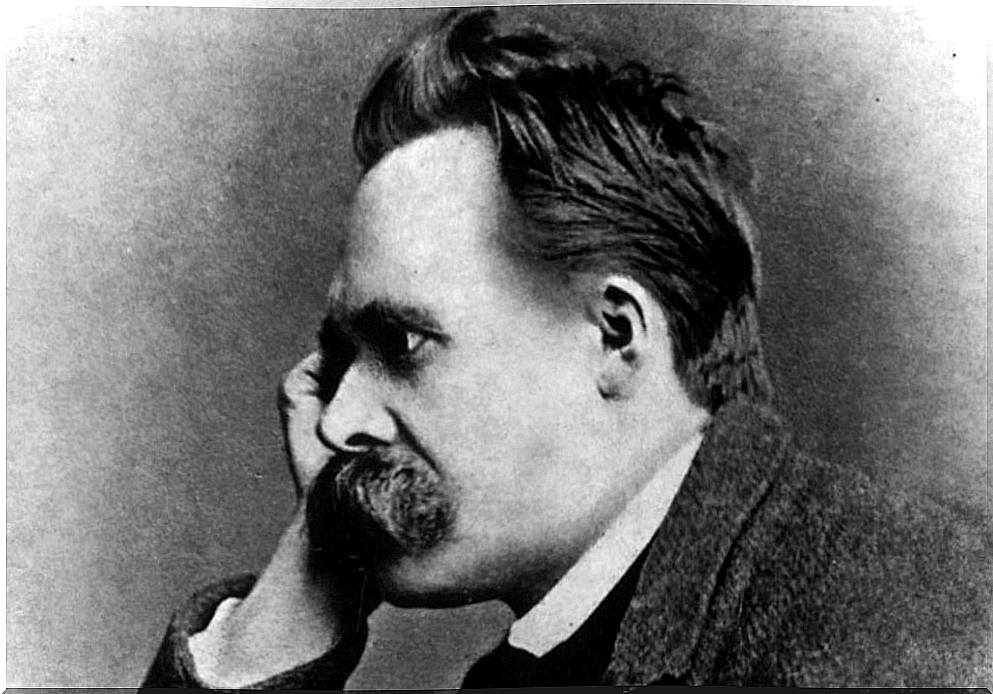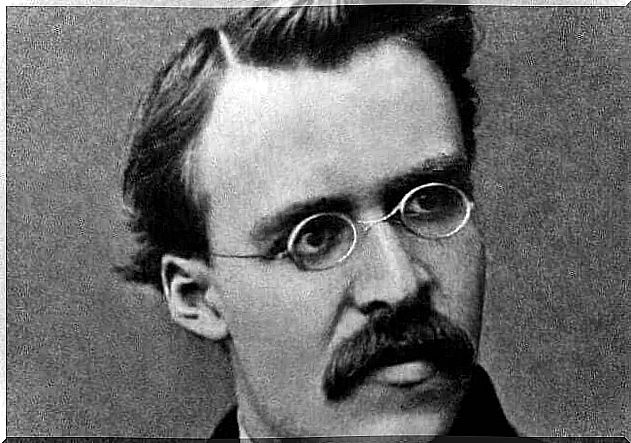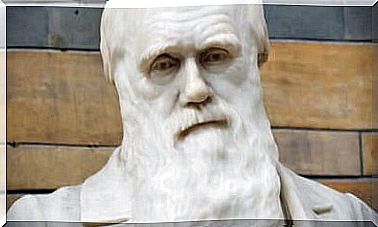Biography Of Friedrich Nietzsche, The Thinker Who Went Beyond Good And Evil

When we think of philosophy, names of classical authors like Aristotle, Plato and Epicurus usually come to mind. However, if we think about more recent authors, probably one of the names that will come up more frequently is Friedrich Nietzsche, whose biography we will present below.
Friedrich Nietzsche was deeply interested in three themes that he developed extensively throughout his work : the idea of the superman, the end of religion as a model of values in modern society, and his reflections on good and evil.
His influence reached many other thinkers, writers and influential figures of the 20th century. The free reinterpretation of some parts of his texts was used as justification for many actions of the Nazi party in the 1930s. Nietzsche’s ideas were revolutionary and became a source for Nazism, which adapted them to its ideology.
Nietzsche published numerous works and his contributions to philosophy carried considerable weight. His texts, despite dealing with philosophical issues, are exceptional readings and somehow blur the fine line that exists between the literary and the purely philosophical.
During the last phase of his life, he suffered from a mental illness that took him away from his job completely. Next, we’ll talk about his biography and show why Friedrich Nietzsche is considered a brilliant thinker.

The beginning of Friedrich Nietzsche’s biography
Friedrich Nietzsche was born in Röcken bei Lützen, Prussia, on October 15, 1844. He was the son of a Lutheran preacher who imparted an unconditional love for God and the religious life to him. His father died amidst great sufferings and one was profound when Friedrich was just four years old.
This seems to have left an intense imprint on the boy, which he was never able to completely heal. The immense love he felt for his father, whom he considered a good person, and the ordeal sent by God in the form of his death shook the foundations of Nietzsche’s life, who was trapped in a deep cognitive dissonance from a very early age.
He could never understand how a kind God could send such great torment to someone who had served him as his father.
At the University of Leipzig, he studied a combination of Literature, Literature and History. During his university life, he met Richard Wagner, for whom he developed a deep admiration. It was at this same time that he felt strongly attracted to the writings of Arthur Schopenhauer.
Wagner and Nietzsche shared a passion for Schopenhauer, although, paradoxically, it was part of the reasons that led to their friendship’s decline.
The works of Friedrich Nietzsche
After finishing his studies, Friedrich Nietzsche taught as a professor of Philology at Basel, began to distance himself from Schopenhauer’s thinking and to write his first works focused on the new values of modern society.
The friendship he had with Wagner deteriorated as the composer’s ideas turned to the moral process that redeems human beings from life.
Wagner was openly anti-Semitic and tremendously self-centered. It seems that Nietzsche came to regard his friend’s ideas as a betrayal of the principle of aesthetics that exalts life above all else.
During the 1889’s, Nietzsche faced a nervous disorder that forced him to completely isolate himself for a long season. However, this isolation led to a very fruitful period, which allowed the development of the key points that would mark the foundations of his philosophical thought.
During this stage, he began to develop one of his most famous statements: “God is dead, God is still dead and we kill him.” The nihilism he would be known for was beginning to take hold in his thinking. His rejection of Christianity and its values as a significant force in society grew more and more.
Why nihilism? Why had God died? It is not that God was dead in the strictest sense of the word, but that, for Nietzsche, there is nothing to believe in, since there is no universality of moral values.
Nietzsche destroyed the old values, rejected the authority and submission of the herd. He built his idea of the superman, the will to power, the creation and destruction of values.
Nietzsche distanced himself from all traditional philosophy, spoke of the idea of the eternal return and placed the will to power at a point beyond good and evil. In this way, the thinking of one of the figures who most contributed to contemporary philosophy was formed.
It was in this period of Friedrich Nietzsche’s biography that he wrote some of his most recognized works : Thus spoke Zarathustra, Beyond Good and Evil, Genealogy of Morals and Twilight of the Idols.
The ideas of the superman, of the individual striving to exist beyond what is considered good and evil, were proposed in Thus Spoke Zarathustra and have just been developed in Antichrist . In the latter, his absolute rejection by the flock, by submission, would become even more latent.

Biography of Friedrich Nietzsche: last years and illness
In 1889, Nietzsche suffered a nervous breakdown that led to a mental deficiency from which he never recovered. Her disease could not be correctly diagnosed at the time, although some authors attributed it to hereditary causes, a brain tumor, syphilis and even the excessive use of sedative substances.
At the time he found himself incarcerated because of his mental illness, he was isolated in the family home he shared with his sister in Weimar, Germany. It was the moment when the Nazi party was beginning to gain supporters in Germany, and Nietzsche’s sister was one of the most ardent supporters of the new ideas of Nazism.
It appears that it was she who, taking advantage of her brother’s deteriorating mental faculties, turned over much of her work to her Nazi party friends. It is even believed that she organized visits to her house to show the sorry state her brother was in, as if it were a kind of macabre spectacle. Never having recovered, Friedrich Nietzsche died on August 25, 1900.
legacy and influence
Nietzsche was considered one of the most influential characters in twentieth-century philosophy. His concepts about the meaning of existence, morality and the individuality of people significantly influenced the work of other great thinkers of the 20th century, such as Sigmund Freud, Carl Jung and Michel Foucault, among others.
During the years immediately after his death, some of his work and some of his most important ideas were used by the Nazi party in a deceptive, selective and out-of-context,
It is true that the controversial idea of the superman, falling into the wrong hands, can be used negatively and interpreted as the superiority of some over others. Yes, Nietzsche was critical of the herd, but his ideas were far removed from those of Nazi thought.
Nietzsche also contributed enormously with his interpretation of Apollonian and the Dionysian, applying it to various arts.
Crazy or are they? Rational or irrational? Nietzsche was beyond these labels. He was one of those authors who combine rationality and irrationality, who blur the concepts of good and evil.
We could write a multitude of pages about Nietzsche’s biography and his contributions to philosophy, but there is no better way to delve into Nietzsche than through Nietzsche himself. In other words, getting lost in his texts, in his work and in his fundamental legacy.









